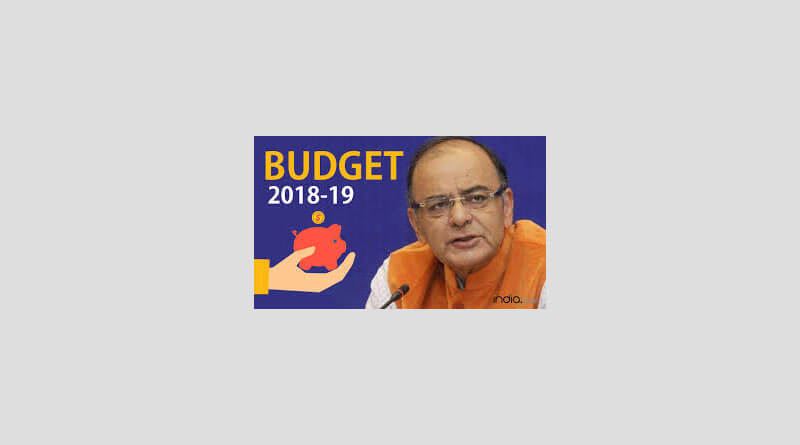Union Budget 2018-19 is Progressive for the Indian Textile Industry
Hon’ble Finance Minister Shri Arun Jaitley has presented the Union Budget 2018-19 in Parliament today. The Budget is guided by mission to strengthen employment generation, MSME, infrastructure sectors including agriculture, rural development, health and education. Shri Sri Narain Aggarwal, Chairman, the Synthetic and Rayon Textiles Export Promotion Council (SRTEPC) welcomed the progressive Union Budget and congratulated Shri Narendra Modi, Hon’ble Prime Minister, Shri Arun Jaitley, Hon’ble Finance Minister, Smt. Smriti Zubin Irani, Hon’ble Textile, Information & Broadcasting Minister, Government of India.
Shri Aggarwal stated that the series of structural reforms proposed by the Government in the Budget will propel India amongst the fastest growing economies of the world. It is expected that the country is firmly on course to achieve over 8 % growth as manufacturing, services and exports back on good growth path.
Major sops for Textile industry in the Union Budget 2018-19 are as under –
- It is proposed to provide an outlay of Rs. 7148 crore for the textile sector in 2018-19.
- Major fund allocated under ATUFS has been increased to Rs. 2300 crores for 2018-19 from Rs. 2013 crores during 2017-18.
- Fund allocation under ROSL has been increased to Rs. 2164 crores from Rs. 1555 crores during 2017-18. It shows the Government’s commitment for employment generating sectors viz., garments and made-ups exports.
- Customs Duty on Silk fabrics has been increased to 20% from current 10% to protect the domestic manufacturers from surging imports in line with “Make in India” initiative of the Government.
- Number of steps to boost employment generation in the country include: –
- Contribution of 8.33% of Employee Provident Fund (EPF) for new employees by the Government for three years.
- Contribution of 12% to EPF for new employees for three years by the Government in sectors employing large number of people like textile, leather and footwear.
- Additional deduction to the employees of 30% of the wages paid for new employees under the Income Tax Act.
- Launch of National Apprenticeship Scheme with stipend support and sharing of the cost of basic training by the Government to give training to 50 lakh youth by 2020.
- Introducing system of fixed term employment Under Section 80-JJAA to be relaxed to 150 days for apparel and footwear sector.
- Increasing paid maternity leave from 12 weeks to 26 weeks, along with provision of crèches.
- 3794 crore is provided to MSME Sector for giving credit support, capital and interest subsidy and innovations.
- It is proposed to set a target of Rs. 3 lakh crore for lending under MUDRA for 2018-19 after having successfully exceeded the targets in all previous years to support small entrepreneurs of Women, SCs, STs and OBCs.
- It is proposed to abolish the Education Cess and Secondary and Higher Education Cess on imported goods, and in its place impose a Social Welfare Surcharge, at the rate of 10% of the aggregate duties of Customs, on imported goods, to provide for social welfare schemes of the Government. This hike will help in protecting domestic industry from cheap imports.
- 5.97 lakh crore allocation for infrastructure to increase growth of GDP, connect and integrate the nation with a network of roads, airports, railways, ports and inland waterways and to provide good quality services to our people. This will suitably address the current infrastructural challenges being faced by the exporters.
- Fund for Interest Equalisation Scheme has been more than doubled to Rs. 2500 crores in 2018-19 from Rs. 1100 crores during 2017-18. This will substantially help in reducing the cost of capital in India which at present is significantly higher as compared to the competing countries.
It is expected that the above initiatives of the Government will help in development and growth of textile industry in India in general and for export of textiles in particular.

